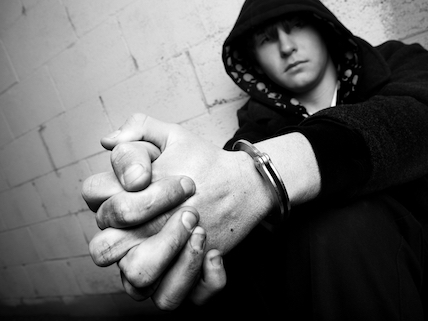When Henry was 18 he had sex with a 16-year-old he met on a dating app who said he was 18, too. The 16-year-old’s parents found out, called the cops, and Henry was charged with a sex offense. He took a plea: No jail time, in return for seven years on the sex offense registry.
Henry’s is just one of about 60 registrants’ stories told by sociologist Emily Horowitz in her new book, “From Rage to Reason: Why We Need Sex Crime Laws Based on Facts Not Fear. If you believe that our country’s sex offense registries should actually make kids safer, this book will leave you shaking in frustration.
Henry’s story:
At the time of his arrest, Henry was attending community college. He was immediately expelled, but appealed and was allowed to graduate. But being on the registry made it hard to find work.
After three years with little income – and several hundred dollars a year in payments for mandated polygraph tests – Henry moved back in with his parents. The neighbors got up in arms, so all three of them moved to Henry’s grandmother’s. “Probation authorities stipulated that Henry had to post signs on each entrance of her house that read, ‘No persons under seventeen allowed on this property,’” Horowitz reports. That meant his cousins could no longer visit.
At last Henry found a good job. But when he gave his probation officer his office address, he was told it was too close to a school. Many registries have location requirements that forbid registrants from living, or sometimes working, near any place kids might congregate: a school, a daycare, a park. (These residency restrictions have been found worthless, when it comes to public safety.)
The way the judge saw it:
Henry begged his probation officer to let him keep this hard-won job. The officer said he could continue working until a judge ruled on his request. But when Henry got to court, writes Horowitz:
“[H]e was told he was in violation of his probation. The judge said he should have quit immediately upon learning from probation that the office was located too close to a school. Henry explained that he didn’t quit because of his pending appeal, as he’d been out of work for months and, additionally, it was a term of his probation was that he be employed….
“At this point, Henry had only three years left of probation. Due to his infraction, however, the judge issued the harshest ruling possible, sentencing Henry to six years in state prison.”
Horowitz doesn’t only tell the stories of Romeo and Juliet – or Romeo and Romeo – cases. She also interviewed registrants who committed serious, disturbing crimes. Sensibly, she believes that “Perpetrators should be punished and held accountable.” But many of the sex offense registry requirements are not only absurd, they have been proven ineffective.
The Registry isn’t making kids safer.
That includes the registry itself. Despite the myth of “frightening and high” re-arrests, decades of scientific studies have consistently found sex crime recidivism is not only low, but lower than almost all other criminal offenses’. These low rates existed both before and after the regitry began, so it has not moved the public safety needle, as this Department of Justice-funded study explains.
Instead, the registry is a mish-mash of punitive rules and mandates, often including counseling, some good, some crackpot. For instance, one registrant told Horowitz that he and his fellow group therapy participants were required to “report all sexual thoughts, including dreams.” One registrant was berated for an “inappropriate” dream.
Horowitz knows that writing with any concern about the punishments incurred by the country’s most hated criminals makes her a target for hate as well, as if she shrugs off the trauma of sexual abuse.
She doesn’t. She is a mom of four. She wrote this book in the hopes that future sex offense laws and punishment will do what they’re supposed to do: actually make kids safer.




2 Comments
Bravo, Lenore, on this most noteworthy, infuriating report. I’m not sure this illegal, unconstitutional. I worry all the more if it’s not. Or ruled not to be. How can we be punishing people for, in essence, thought crimes. We’ve had compelling lit and TV and movies against this: including Minority Report, Mighty compelling to me. Versus this wretched incivility, Since when this brutal notion we control our dreams? Or the even worse notion he should be punished regardless?
Bravo this most impt., compelling article, Lenore! I’m shocked. Severe punishishment for thought crimes? Like the IMO compelling Minority Report and much else elite sci fi. Does anyone doubt this is anti-gay bigotry to boot? Oh so scary. Goodbye civility.
I was 17, a minor, my entire first year of college. Did I render it illegal for young sex offenders to attend? None assaulted me there. Plenty adults hit on me. Religious evangelicals even more than pederasts. So what? So long as one ‘no’ suffices, I consider this civil society.